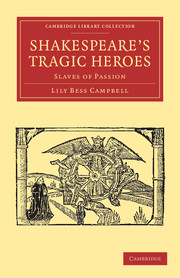CHAPTER FOUR
The Uses of Philosophy.
Published online by Cambridge University Press: 07 September 2010
Summary
The sentence which opens the chapter in The Cambridge History of English Literature on “The Beginnings of Moral Philosophy in England” is significant of the general failure to consider seriously that great body of popular philosophy which made a large part of the published books of the sixteenth century in England. Professor Sorley, in the opening sentence of the chapter cited, says:
The English language may be said to have become for the first time the vehicle of philosophical literature by the publication of Bacon's Advancement of Learning, in 1605.
Yet a survey of the books published in England before 1605 shows a massive array of works in many editions dealing with moral philosophy. It is not my purpose to trace this early history of English moral philosophy, however, for I am not a philosopher. Rather I purpose to trace in the works on moral philosophy published in England during the sixteenth century the main ideas which seem to me to have formed the background of the conception of tragedy which is shown in the tragedies of Shakespeare, ideas which were fundamental ideas held by Shakespeare in common with the best philosophical thinkers of his generation.
That there was little new in these ideas no one can deny, for they represent something like a composite picture of the works of the most revered ancients and the most influential Schoolmen. Hippocrates, Galen, Aristotle, Plato, Plutarch, Cicero, Quintilian, Seneca, Hesiod, Thomas Aquinas, Augustine—these are the names which are mingled with others of less frequent recurrence in the list of authorities for philosophical ideas throughout the century.
- Type
- Chapter
- Information
- Shakespeare's Tragic HeroesSlaves of Passion, pp. 47 - 50Publisher: Cambridge University PressPrint publication year: 2009First published in: 1930

